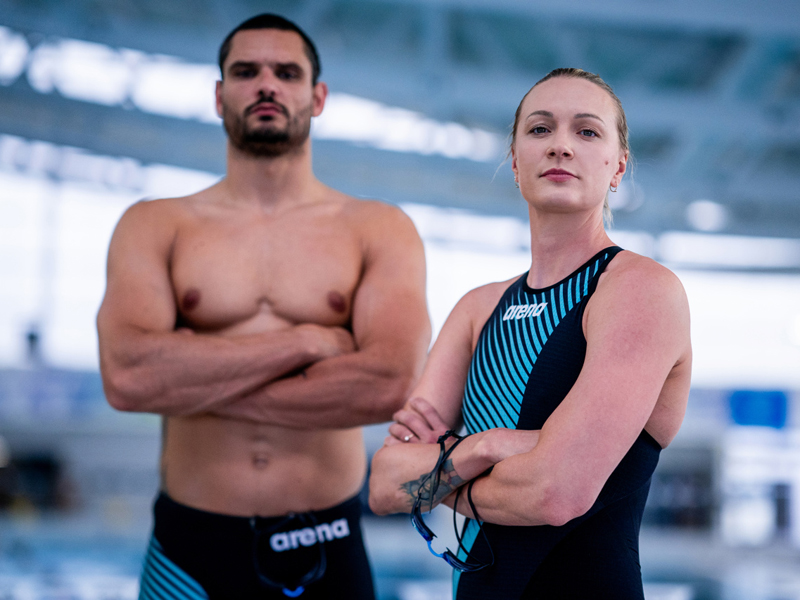We are competitive swimmers. We are athletes. We are a rare breed of people who set 4:30 a.m. alarms, who sweat while most people are asleep, who push our bodies to keep going even when our arms and legs are screaming for us to stop. How? What gives us the self-discipline to wake up once again the next day and attack it with as much vigor and intensity as the last?
Easy – mentality.
Being a swimmer, or any athlete really, requires mental preparedness more than anything. We need to be our own cheerleader, our own coach, and our own biggest fan because the second we dive into that water the rest of the world goes quiet and we are alone with just our thoughts.
Sometimes being mentally strong comes naturally. When things are going well, and we feel good in the water, it is easy to reflect this positivity. But what about when this isn’t the case? How can we stay enthusiastic when the water is not agreeing with us? When we have bad swims, or after practices that we know should have gone better?
Possibly the most important factor to keeping a good outlook despite personal shortcomings at meets or during workouts is creating a positive training environment. Surround yourself with teammates that you know will lift you up, encourage you, and who won’t be shy to push you when you’re feeling fatigued. As a group, using uplifting words as opposed to negative ones is a good way to remain supportive. For example, whenever someone on my team says anything along the lines of “I’m tired” or “This is hurting”, we use the catchphrase “We got this” to push one another to succeed as a team instead.
Another crucial part to staying upbeat about a sport that can sometimes have its ups-and-downs is by celebrating the small victories. I know so many swimmers who will go personal best times in a race, but will still be upset if they didn’t reach a certain goal or time standard. A best time is still a best time regardless, and deserves to be acknowledged. Take the time to stop and appreciate the miraculous things your body is doing. Even if you are not quite where you want to be yet, enjoy the moment. Be grateful for that time you just out-touched the person next to you, even if it wasn’t the race you were hoping for. Enjoy getting that bronze medal, even if it isn’t the gold you had been yearning for. Appreciate every victory, however small.
Sometimes, however, races or workouts go so poorly that it is hard to pick out positive aspects to be happy with. That is completely alright, too. Talk to any world-class athlete out there, and I’m sure even they will be able to tell you about competitions that went extremely badly. You need to remember, though, that one bad race does not define you. Learn to distinguish between races or sets. Just because your first event of a competition doesn’t go well does not mean that the whole weekend is a bust. Do not allow yourself to be defeated by one bad outcome. Instead, take a few minutes to yourself to collect your thoughts. Take that anger and frustration and use it to fuel your energy for the next race.
When it all comes down to it, you have to remember that tough times don’t last, but tough people do. The sets that make you cry into your goggles. The dry-land workouts that leave you so sore you can barely walk the next day. The pace times that leave you gasping for air. They are all turning you into a better athlete.
You are so much tougher than you know. So start by believing in yourself.
—————
